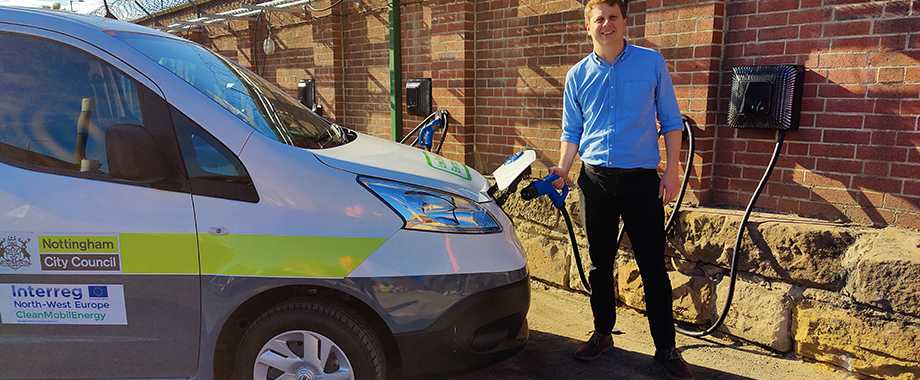Nottingham City Council

A key part of its contribution towards achieving CN28 focuses on decarbonising its vehicle fleet which, in 2016, accounted for 18% of the Council’s total CO2 emissions. Since then, the Council has made significant progress in this area, with 243 vehicles now fully electric - over half of its fleet. The fleet includes the UK’s first fully electric compact sweeper, minibus and cage tipper, as well as the World’s first OEM electric refuse collection vehicle.
To help share its lessons learnt and facilitate the uptake of ultra-low emission vehicles (ULEVs) and electric vehicles (EVs) by public sector organisations across the UK, the Council created a Public Sector ULEV Procurement Framework. The framework covers the purchase of ultra-low or zero-emission cars, vans, sweepers, minibuses and Hackney Carriage taxis up to 7.5t. It provides access to an OJEU compliant process which purchasing authorities can use to access vehicle specifications that have been created by industry experts and have been proven to work in a local authority setting, offering security to purchasers that the vehicles can operate effectively in a real-world environment. As part of this framework, the Nottingham team will guide purchasers through the entire process, advising on anything from the vehicles themselves through to charging infrastructure, maintenance, driver buy in and operation.
The Council’s fleet decarbonisation journey and support via the framework is a continuation of the pioneering transport measures introduced by the Council. Arguably the most innovative transport scheme introduced is the Workplace Parking Levy (WPL) as a congestion capping scheme. Since its introduction in 2012, the WPL has helped Nottingham invest over £1 billion into sustainable transport in Nottingham; reduce congestion growth by 47%; reduce emissions across the city by 58% and generated annual savings of £15.4 million for businesses and the local area. With the WPL being the first of its kind in Europe, coupled with growing demand by central and local governments for measures which tackle congestion, air pollution and greenhouse gas emissions, the Council have begun consulting with other local authorities to assess the viability and benefits of introducing their own WPL schemes.
Nottingham is a leader in transport innovation and the Council is keen to help other urban areas benefit from its learning to help decarbonise the UK quickly and improve air quality for all.
